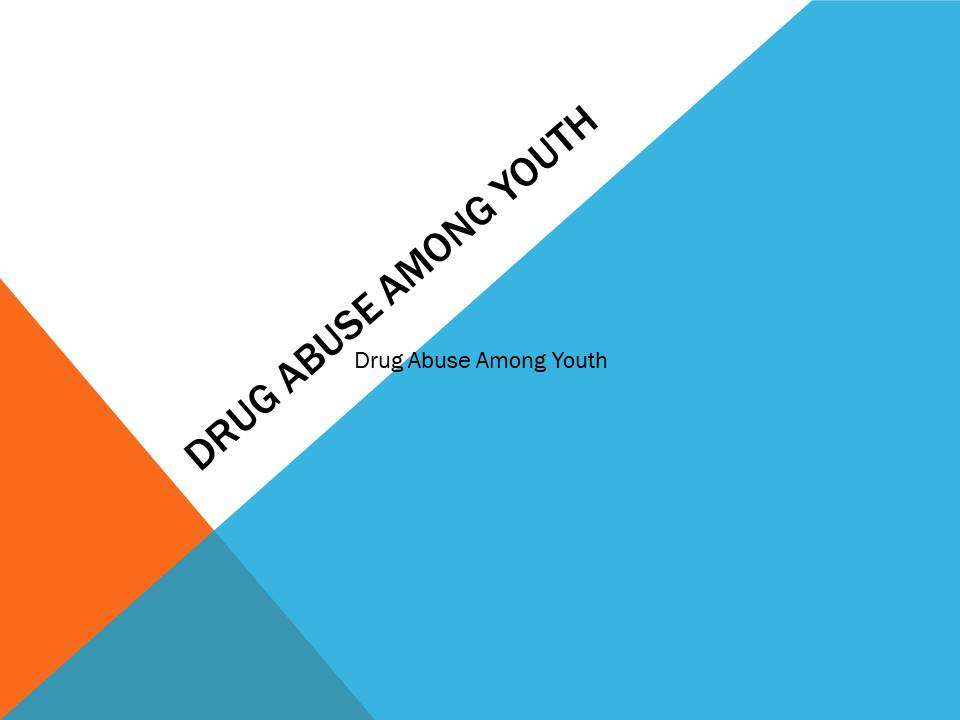Exploring the Impact of Car Insurance Policies on Medicaid Recipients: Coverage Gaps, Affordability, and Access to Healthcare
Introduction:
In the United States, access to affordable healthcare is a pressing issue, especially for low-income individuals who rely on Medicaid for their medical needs. However, an often-overlooked aspect of healthcare accessibility is the relationship between car insurance policies and Medicaid coverage. This article aims to shed light on the impact of car insurance policies on Medicaid recipients, focusing on coverage gaps, affordability, and the subsequent effect on access to healthcare.
- The Intersection of Car Insurance and Medicaid
Car insurance is a legal requirement in most states, designed to protect drivers and others in case of accidents. It provides financial coverage for property damage and bodily injury resulting from a car accident. On the other hand, Medicaid is a government program that offers healthcare coverage to low-income individuals and families. While these two systems serve distinct purposes, their intersection can have significant implications for Medicaid recipients.
Medicaid provides health coverage to millions of low-income Americans, but it may not cover expenses related to car insurance. This situation creates a complex web of challenges for Medicaid recipients, particularly in terms of coverage gaps and affordability. As Medicaid recipients often struggle with limited financial resources, the cost of car insurance premiums can pose a significant burden.
One key issue arising from the intersection of car insurance and Medicaid is the potential for coverage gaps. Medicaid typically covers medical expenses such as doctor visits, hospital stays, and prescription medications. However, car insurance policies often do not cover medical expenses in case of accidents. This discrepancy leaves Medicaid recipients vulnerable to substantial healthcare costs that fall outside their car insurance coverage and Medicaid. Such coverage gaps can result in unexpected financial hardships and may require individuals to navigate complex and fragmented healthcare financing.
Moreover, the affordability of car insurance premiums is a pressing concern for Medicaid recipients. Medicaid eligibility is determined by income thresholds, and the cost of car insurance can affect a person’s income and financial stability. Car insurance premiums can be a significant expense, especially for individuals with limited resources. Higher premiums can reduce the disposable income available for other essential needs, such as food, housing, and healthcare. As a result, Medicaid recipients may face difficult choices between paying for car insurance and affording necessary medical treatments or prescriptions.
The impact of car insurance policies on Medicaid recipients extends beyond coverage gaps and affordability challenges. It also affects access to healthcare. When individuals are forced to prioritize paying for car insurance, they may have limited resources left to cover co-pays, deductibles, or other out-of-pocket medical expenses. This financial strain may deter Medicaid recipients from seeking necessary healthcare services or prescriptions, leading to delayed or inadequate treatment. The resulting lack of access to timely and appropriate care can have long-term consequences on their health outcomes.
In summary, the intersection of car insurance policies and Medicaid creates a complex dynamic for low-income individuals seeking healthcare. Coverage gaps, affordability challenges, and the subsequent impact on access to healthcare are significant issues faced by Medicaid recipients. Addressing these challenges requires a comprehensive approach involving collaboration between insurance regulators, Medicaid agencies, and healthcare providers. By recognizing and addressing the unique needs of Medicaid recipients within the context of car insurance, policymakers and stakeholders can work together to ensure that individuals have access to the healthcare they need without sacrificing financial stability.
- Coverage Gaps for Medicaid Recipients
One of the significant issues faced by Medicaid recipients in the context of car insurance is the presence of coverage gaps. While Medicaid provides comprehensive healthcare coverage for eligible individuals, car insurance policies often do not extend the same level of coverage for medical expenses resulting from accidents.
When an accident occurs, car insurance policies primarily focus on covering property damage and bodily injury to the involved parties. However, these policies typically do not include coverage for medical expenses, such as hospital bills, doctor visits, or rehabilitation costs. As a result, Medicaid recipients who are involved in car accidents may find themselves facing substantial healthcare expenses that fall outside their car insurance coverage and Medicaid.
The coverage gap between car insurance policies and Medicaid can create financial hardships for individuals already struggling with limited resources. They may suddenly find themselves responsible for medical bills that their car insurance does not cover. This situation can be particularly challenging for Medicaid recipients, as they rely on the program for their healthcare needs and may not have additional financial resources readily available to cover these unexpected costs.
Moreover, navigating the complexities of dual coverage can be overwhelming for Medicaid recipients. Understanding the intricacies of their car insurance policies, deciphering which expenses are covered, and determining what should be billed to Medicaid can be confusing and time-consuming. This administrative burden adds an additional layer of stress and complexity to an already challenging situation.
These coverage gaps can have significant implications for Medicaid recipients’ financial well-being. When faced with unexpected medical bills, individuals may be forced to divert funds away from other essential needs, such as rent, utilities, or food, in order to cover their healthcare expenses. This can create a cycle of financial instability, as the strain of additional costs impacts their overall financial health and ability to meet basic needs.
Addressing coverage gaps for Medicaid recipients requires a collaborative effort between insurance regulators, Medicaid agencies, and healthcare providers. Exploring potential solutions such as expanding Medicaid coverage to include car insurance-related medical expenses or creating assistance programs specifically designed to support Medicaid recipients in managing both car insurance and healthcare costs could help alleviate the burden of coverage gaps.
In conclusion, coverage gaps between car insurance policies and Medicaid present a significant challenge for Medicaid recipients. The lack of coverage for medical expenses resulting from accidents can lead to unexpected financial burdens and create hardships for individuals already struggling to make ends meet. Recognizing these gaps and working towards solutions that bridge the divide between car insurance and Medicaid coverage is essential to ensure that Medicaid recipients have access to the comprehensive healthcare coverage they need without being burdened by excessive medical expenses.
III. Affordability Challenges
Affordability is a critical factor that influences the impact of car insurance policies on Medicaid recipients. For low-income individuals who rely on Medicaid for their healthcare coverage, the cost of car insurance premiums can present significant financial challenges and affect their overall financial stability.
Car insurance premiums are determined by various factors, including driving history, vehicle type, and location. However, for Medicaid recipients, who often have limited income and resources, the cost of these premiums can be burdensome. The financial strain imposed by high car insurance premiums can make it difficult for individuals to allocate their limited funds towards other essential needs, such as rent, utilities, or groceries.
The affordability challenges faced by Medicaid recipients can be further exacerbated by the income thresholds that determine Medicaid eligibility. As the cost of car insurance premiums is factored into an individual’s income, it can potentially impact their eligibility for Medicaid or the amount of Medicaid assistance they receive. This situation creates a dilemma for individuals who must weigh the necessity of car insurance against the risk of losing or reducing their Medicaid coverage.
In some cases, Medicaid recipients may face difficult choices between paying for car insurance and affording necessary healthcare services or prescriptions. They may be forced to prioritize their car insurance premiums, leaving limited resources for co-pays, deductibles, or out-of-pocket medical expenses. As a result, individuals may delay or forgo essential medical care, which can have detrimental effects on their health outcomes and well-being.
Moreover, the affordability challenges associated with car insurance premiums can perpetuate a cycle of financial instability for Medicaid recipients. Higher insurance premiums can strain already limited budgets, leading to potential financial hardships and a decreased ability to meet other basic needs. This can have cascading effects on individuals’ overall financial health and their ability to maintain stable housing, access nutritious food, or afford other crucial expenses.
Addressing the affordability challenges related to car insurance for Medicaid recipients requires a multi-faceted approach. Collaboration between insurance regulators, Medicaid agencies, and policymakers is crucial in finding viable solutions. Exploring options such as discounted car insurance rates specifically tailored for Medicaid recipients or considering financial assistance programs to help alleviate the financial burden of car insurance premiums could be potential avenues to explore.
In conclusion, the affordability challenges stemming from car insurance premiums can significantly impact Medicaid recipients’ financial stability and ability to access necessary healthcare. The cost of premiums can strain limited resources and force individuals to make difficult decisions between paying for car insurance and meeting their healthcare needs. Recognizing these challenges and implementing targeted solutions can help ensure that Medicaid recipients have the financial means to afford both car insurance and essential medical care, thus promoting their overall well-being and access to healthcare services.
- Impact on Access to Healthcare
The intersection of car insurance policies and Medicaid can have a profound impact on the access that Medicaid recipients have to healthcare services. The financial strain caused by car insurance expenses can create barriers that hinder individuals’ ability to seek timely and necessary medical care.
When Medicaid recipients are faced with the financial burden of car insurance premiums, they may have limited resources left to cover co-pays, deductibles, or other out-of-pocket medical expenses. As a result, individuals may delay or forego seeking healthcare services, including preventive care, routine check-ups, or necessary treatments. This delay in accessing healthcare can have long-term consequences on their health outcomes, potentially leading to the progression of conditions that could have been managed or treated more effectively with timely intervention.
Moreover, the financial strain associated with car insurance can also impact Medicaid recipients’ ability to afford prescription medications. Medications are a crucial aspect of healthcare for many individuals, particularly those with chronic conditions. However, the cost of medications, combined with the burden of car insurance premiums, can create a situation where individuals may be unable to afford or adhere to their prescribed treatment plans. This can further exacerbate health issues and lead to poorer health outcomes.
The impact on access to healthcare is especially concerning for Medicaid recipients, as the program serves as their primary source of healthcare coverage. Medicaid is designed to ensure that eligible individuals have access to comprehensive healthcare services. However, when individuals are unable to afford the out-of-pocket costs associated with their Medicaid coverage due to financial obligations towards car insurance, it undermines the very purpose of the program.
The lack of access to timely and appropriate healthcare can have far-reaching consequences, not only for individuals but also for the healthcare system as a whole. Delayed or inadequate medical care can lead to increased healthcare costs in the long run, as conditions worsen and require more intensive interventions. It can also contribute to health disparities, as individuals from low-income backgrounds may face greater challenges in accessing the healthcare they need to maintain their well-being.
Addressing the impact on access to healthcare for Medicaid recipients requires collaborative efforts among insurance regulators, Medicaid agencies, and healthcare providers. Solutions should focus on finding a balance between car insurance requirements and the financial stability of Medicaid recipients. This may involve exploring options such as discounts or subsidies for car insurance premiums, integrating car insurance-related medical expenses into Medicaid coverage, or developing assistance programs that specifically address the challenges faced by Medicaid recipients in balancing their car insurance obligations and healthcare needs.
In conclusion, the intersection of car insurance policies and Medicaid can create significant barriers to accessing healthcare for Medicaid recipients. The financial strain associated with car insurance premiums can impede individuals’ ability to afford co-pays, deductibles, and medications, leading to delays or avoidance of necessary medical care. Recognizing and addressing these challenges is essential to ensure that Medicaid recipients have equitable access to the healthcare services they require, promoting better health outcomes and reducing disparities within the healthcare system.
- Potential Solutions and Policy Considerations
Addressing the complex issues arising from the intersection of car insurance policies and Medicaid requires thoughtful consideration and the implementation of potential solutions that prioritize the well-being of Medicaid recipients. Policymakers, insurance regulators, and healthcare stakeholders can work together to develop strategies that alleviate coverage gaps, improve affordability, and enhance access to healthcare for this vulnerable population.
One potential solution is to explore the inclusion of car insurance-related medical expenses within the scope of Medicaid coverage. By expanding Medicaid to cover medical costs resulting from car accidents, individuals would have a more seamless healthcare experience, reducing the burden of navigating dual coverage systems. This would help close the coverage gaps that currently exist, ensuring that Medicaid recipients receive the necessary medical care without incurring significant out-of-pocket expenses.
Another approach is to consider the implementation of discounted car insurance rates specifically tailored for Medicaid recipients. Collaborative efforts between insurance companies, Medicaid agencies, and policymakers can explore options to provide more affordable car insurance premiums for individuals who rely on Medicaid. This approach would help alleviate the financial strain on Medicaid recipients, allowing them to meet their car insurance obligations without sacrificing their ability to afford essential healthcare services.
Additionally, creating targeted financial assistance programs could offer support to Medicaid recipients in managing both car insurance and healthcare costs. These programs could provide subsidies or grants to help offset the expenses associated with car insurance premiums or out-of-pocket healthcare costs. By reducing the financial burden on Medicaid recipients, such assistance programs would enhance their overall financial stability and enable them to prioritize their healthcare needs.
Moreover, enhancing coordination and communication between insurance regulators, Medicaid agencies, and healthcare providers is crucial. Establishing streamlined processes and protocols for billing and reimbursement between car insurance and Medicaid can simplify administrative tasks for both providers and patients. Clear guidelines and information on available resources can help individuals understand their coverage options and make informed decisions regarding their car insurance and healthcare needs.
Policy considerations should also prioritize the equitable distribution of resources and access to healthcare services. It is important to ensure that Medicaid recipients, who are often from low-income backgrounds, are not disproportionately burdened by car insurance expenses. Policymakers should actively engage with community organizations, advocacy groups, and healthcare providers to understand the unique challenges faced by Medicaid recipients and develop targeted policies that address their specific needs.
In conclusion, addressing the challenges at the intersection of car insurance policies and Medicaid requires a comprehensive and collaborative approach. By exploring potential solutions such as expanding Medicaid coverage, implementing discounted car insurance rates, and creating financial assistance programs, policymakers can mitigate coverage gaps, improve affordability, and enhance access to healthcare for Medicaid recipients. Taking into account the perspectives of stakeholders and prioritizing equity in resource distribution will be key in ensuring that Medicaid recipients can navigate both car insurance and healthcare systems without undue financial burden, thus promoting their overall well-being and access to essential healthcare services.
Conclusion:
The interplay between car insurance policies and Medicaid coverage has significant implications for low-income individuals’ access to healthcare in the United States. By recognizing and addressing the coverage gaps and affordability challenges faced by Medicaid recipients, policymakers and stakeholders can work together to ensure that individuals have access to the healthcare they need without sacrificing financial stability. It is vital to continue exploring solutions that bridge the gap between car insurance policies and Medicaid coverage, thus creating a more equitable and accessible healthcare system for all.
Medicaid Recipients, Medicaid Recipients, Medicaid Recipients, Medicaid Recipients, Medicaid Recipients, Medicaid Recipients, Medicaid Recipients, Medicaid Recipients, Medicaid Recipients, Medicaid Recipients, Medicaid Recipients, Medicaid Recipients, Medicaid Recipients, Medicaid Recipients, Medicaid Recipients,
Medicaid Recipients, Medicaid Recipients, Medicaid Recipients, Medicaid Recipients, Medicaid Recipients, Medicaid Recipients, Medicaid Recipients, Medicaid Recipients, Medicaid Recipients, Medicaid Recipients, Medicaid Recipients, Medicaid Recipients, Medicaid Recipients, Medicaid Recipients, Medicaid Recipients,
Medicaid Recipients, Medicaid Recipients, Medicaid Recipients, Medicaid Recipients, Medicaid Recipients, Medicaid Recipients, Medicaid Recipients, Medicaid Recipients, Medicaid Recipients, Medicaid Recipients, Medicaid Recipients, Medicaid Recipients, Medicaid Recipients, Medicaid Recipients, Medicaid Recipients,



